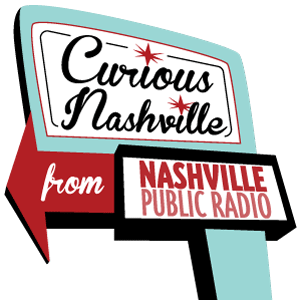
If you’re new to Nashville, and no one’s told you yet, let me be the first. That name is not pronounced the way you think.
Tennessee has some less-than-intuitive pronunciations that can make transplants easy to spot and directions hard to get. But even if you’re of the rare number that can call themselves Nashville natives, you may know the name but not the story.
That prompted one listener to ask our Curious Nashville team why Middle Tennesseans pronounce Lafayette differently than so many other places. We took that opportunity to investigate some of the most commonly mispronounced places in Middle Tennessee.
Lafayette [LUH-fay-ett]
Lafayette, both the street in Nashville and the town an hour away, were named after the Marquis de Lafayette, a frenchman who fought in the Revolutionary War.
Now, the marquis was popular. He has roughly 75 cities and towns named after him across the country. Andrew Jackson invited him to Nashville once, and the city has not forgotten.
Jeff Sellers of the Tennessee State Museum says people collected so many things from Lafayette’s stay in Nashville, that there are still well-preserved glasses, slippers and bed curtains from the parties thrown in his honor.
“It’s hard for us to compare it to, maybe, the Beatles arriving in the States,” Sellers says. “But that was the hysteria around this man coming back.”
But for a city that went crazy for the man, why do we pronounce his name differently than the original French?
Well, it’s a pattern statewide. Tennesseans loved the French people. They did not love the French language.
Linguist Rick Morris says that’s common for English speakers.
“We’re actually completely changing the vowel timbre, and we’re moving the stress back,” Morris says. “And really there is no better way to describe that than just … we’re naturalizing the phonology of the word so that it doesn’t sound as foreign.”
And the marquis is just one example of that.
Demonbreun [duh-MUN-bree-uhn]
Demonbreun Street is named for another Frenchman. Timothy Demonbreun was a French fur trader, who came down the Mississippi River to sell beaver fur and never left.
Davidson County historian Carole Bucy says that’s unusual for a fur trader. It makes more sense to go north, where animals need longer fur to survive the winter.
“Nonetheless,” Bucy says, “he has lots of descendants here. After Nashville became a city, he settled here permanently.”
Sevier [SUH-veer]
Our final Frenchman, John Sevier, fought in the Revolutionary War like the marquis, but he stayed much longer — long enough to become the state’s first governor.
Sevierville and Sevier County in East Tennessee are named after him, but in dropping the French pronunciation and making it more friendly to English speakers, we get a county that sounds more like the word “severe” than “Sevier.”
Cairo [KAY-row] and Bolivar [BOWL-uh-var]
Both Cairo and Memphis were named after Egyptian cities, both named by General James Winchester.
“He believed that Cairo was going to be his legacy and that Memphis was not going to ever be able to develop,” Bucy says. “And of course, Cairo is now under the waters of the Old Hickory. It no longer exists.”
And Bolivar was named after Simón Bolívar, who Tennesseans admired at the time for starting a similar rebellion against colonial rule in Venezuela.
Lebanon [LEB-uh-nun]
Just east of Nashville, the city of Lebanon is a Biblical reference to the cedars of Lebanon, because the city itself is full of cedar trees.
But it’s not pronounced like the Lebanon it references. The name ends with a “-nun” rather than a “-non,” and the closer you get to the city, the more likely you are to hear it pronounced with two syllables rather than three. Because no matter what the history of a location, the locals are always going to pronounce it a little differently than those visiting.
“If you live in Nashville, but you spend some time in Knoxville, you might over time start to call it Nash-vuhl, but still keep calling it Knoxville,” Morris says. “The one where you spend most of your time … has the most opportunity to undergo a common English reduction.”
But, those pronunciations sometimes change depending on who you’re talking to.
“And so, it stands to reason that a person in Nashville, who is perhaps a server in a restaurant or somebody like that, might throw in a ‘y’all,’ right?” Morris says. “Make them feel like they’re getting their money’s worth from having come to the South, that they actually got to hear some southern.”
That’s called audience design, and it’s just one of the many reasons Middle Tennessee pronunciations are so unique.


